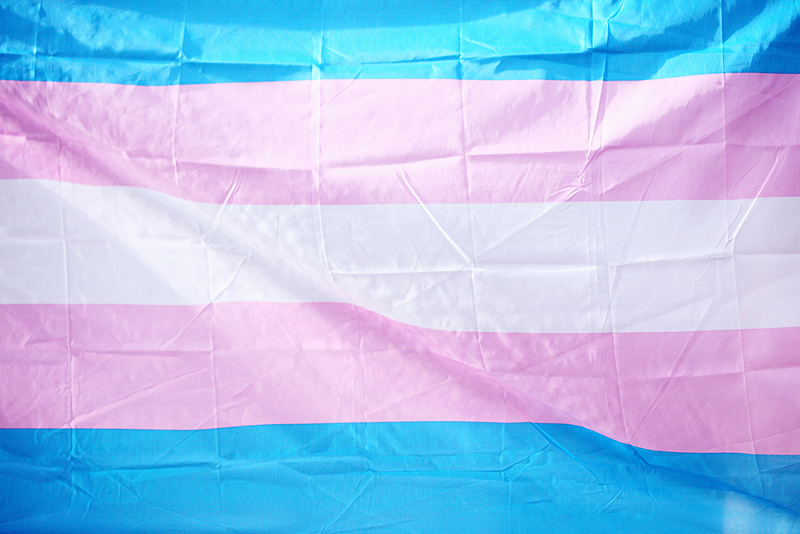LGBTQ+ Ohioans already face barriers at the voting booth.
A new package of anti-voter bills signed into law last week by Republican Gov. Mike DeWine will make it even more difficult for LGBTQ+ Ohioans to cast their ballots.
With a new requirement that Ohioans will now have to present a photo ID, these new changes could lead to disenfranchisement for transgender people, in particular.
Ohio has ‘extreme’ voter restrictions
In an official statement, Ohio Democratic Party Chair Elizabeth Walters called the move “one of the worst anti-voter bills in the entire country.”
Since 2020, the nation has seen a rash of anti-voter legislation. By the end of 2021, legislators had proposed 440 anti-voter bills designed to disenfranchise voters in all but one state.
Similar to stringent voting restrictions passed in other states, Ohio’s newest voting laws will:
- Eliminate the ability to use utility bills, bank statements, paychecks, birth certificates and other official government documents as voter ID.
- Require Ohio voters to present a photo ID to prove their identities (a valid state driver’s license, state photo ID, military ID or passport).
- Eliminate voting the Monday before elections and shorten Ohio’s early voting window.
- Eliminate curbside voting for voters who cannot prove their disability.
- Limit ballot drop boxes to one per Ohio county.
Earlier this week, the ACLU of Ohio called the changes extreme and unnecessary via Twitter — and told WKYC reporters they estimate roughly one million Ohioans will not be able to cast a ballot based on the changes.
Voting while trans
The baseline experience for transgender Americans is already fraught.
Many transgender people experience violent and discriminatory treatment in their own homes, schools and workplaces, with little recourse and few protections.
Transgender youth face alarming school dropout rates, often preceded by months or years of bullying, harassment or assault at school. In the aftermath, the chances that a young transgender person will experience addiction, sexual assault and housing instability skyrocket.
As a result, transgender people across the country are far more likely to experience poverty and housing instability than their cisgender peers — both factors can make it difficult or impossible to provide proper voter identification, or arrive at the polls within a shorter voting window.
Because the legal name-change process is lengthy and expensive, many trans and gender non-conforming people use names that do not match official government records.
Often, that means trans and gender non-conforming people are required to out themselves to poll workers by presenting a photo ID that has not been corrected to match their name or official gender marker.
“Just as trans individuals face heightened discrimination in general, trans voters may be targeted and have an uncomfortable or even unsafe experience,” Lauren Kunis, the CEO and executive director of the voting rights nonprofit VoteRiders, told them earlier this month.
What to know before you head to the voting booth
Before voting, make sure the name on your state driver’s license, state ID, military ID or passport matches the name under which you are registered to vote.
If you do not have access to an acceptable form of voter ID, you may still be able to cast a provisional ballot, which allows you to follow up with your local board of elections within a few days to provide the necessary identification.
If you have legally changed your name and it no longer matches the name under which you are registered to vote, you will need to bring a completed proof of name change form to present to poll workers.
Trans Ohioans have a right to vote
Coupled with the massive wave of anti-LGBTQ+ and anti-transgender legislation over the last several years, enacting stringent voter laws helps further marginalize transgender people and limit their ability to participate in public life.
Ohio State senator and out lesbian Nickie Antonio also condemned the bill’s passage via Twitter, writing on Jan. 6 that the bill will hurt all Ohioans.
The same day, a law firm representing the Northeast Ohio Coalition for the Homeless, the Ohio Federation of Teachers, the Ohio Alliance for Retired Americans and the Union Workers Veterans Council filed a lawsuit against the state of Ohio challenging the new voter laws.
“While election fraud is virtually nonexistent in Ohio,” the firm said in a written statement, “voter suppression is, unfortunately, alive and well.”This story was originally published on The Buckeye Flame and is republished here with permission.
Coming soon: CityBeat Daily newsletter. We’ll send you a handful of interesting Cincinnati stories every morning. Subscribe now to not miss a thing.
Follow us: Google News | NewsBreak | Reddit | Instagram | Facebook | Twitter


